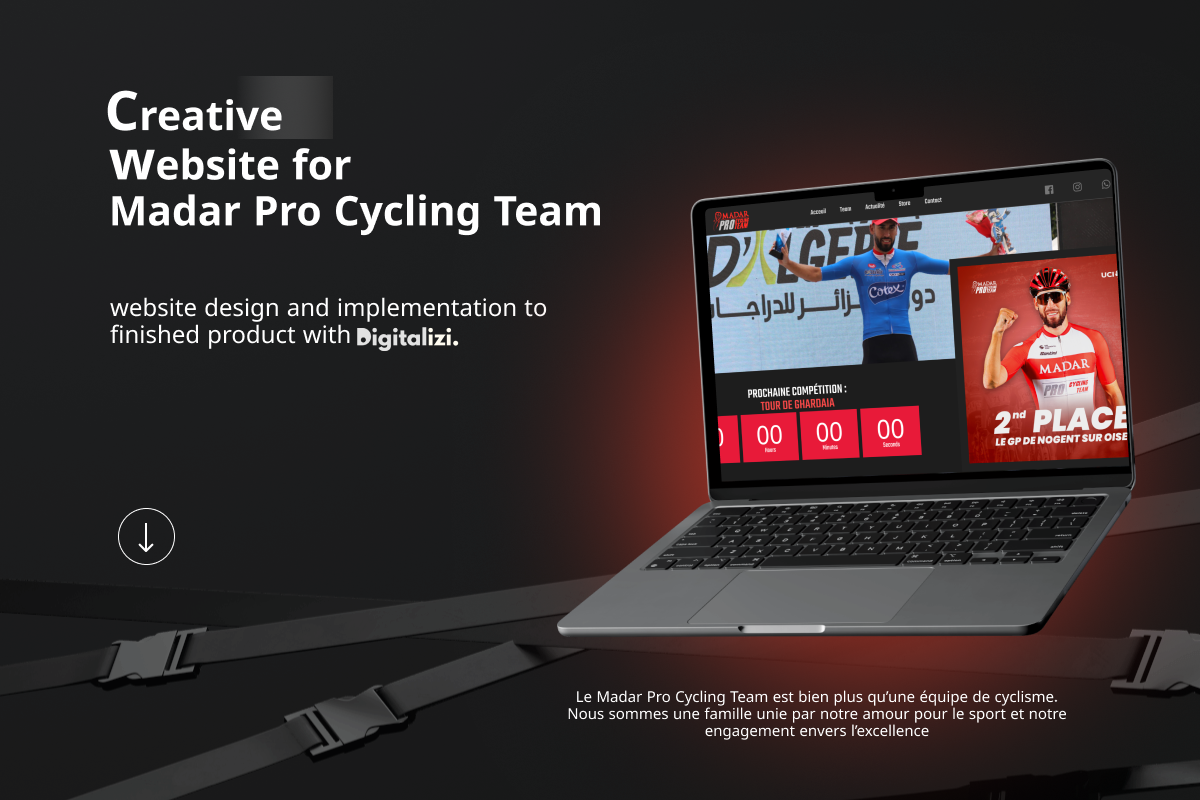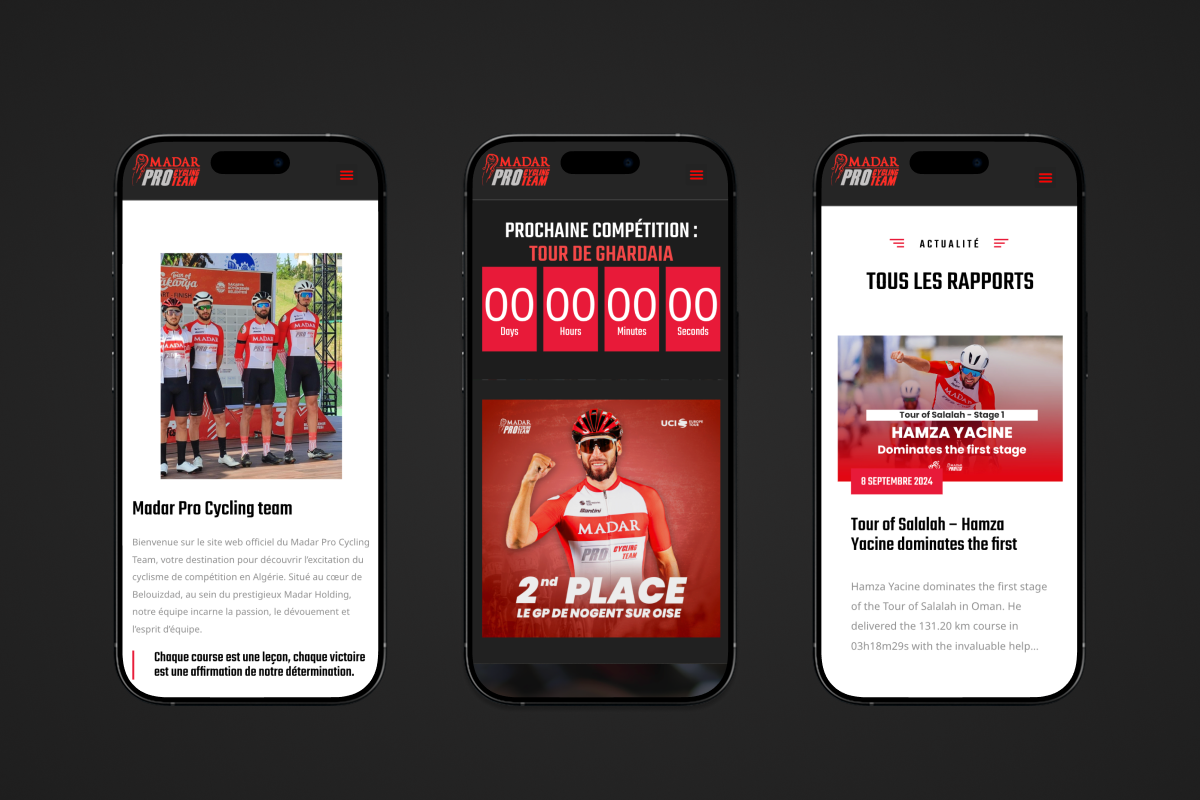Branding emphasizes the product’s unique selling propositions (USPs), such as innovative features, superior quality, or specific benefits, making it easier for consumers to see its value.
Context
A strong brand helps consumers remember the product by making it easier for them to recall it when making purchasing decisions. Consistent use of brand elements contributes to this recognition.
Effective branding ensures that the product is top-of-mind when consumers think of a particular need or category thus increasing the likelihood of repeat purchases.
Details
Time Frame:
Jan 24 – Apr 24
Role:
UI/UX Designer, Web Devolper
Involvement:
Web Interface

Overview
The goal of product branding is to create a distinct identity and image for a product in the minds of consumers, which differentiates it from competitors and builds a strong connection with the target audience.
Challenge
The main challenge for the Madar Pro Cycling Team is to convert their functional platform into a powerful communication tool that inspires trust, builds community loyalty, and justifies investment from corporate sponsors.

Solution
Digitalizi’s intervention focuses on a strategic overhaul of the content to align the messaging with the visual excellence and ambition of the team, prioritizing error correction and adopting high-performance language.
- Strong branding can create a sense of community among users
- Effective product branding goes beyond functionality and connects with consumers on an emotional level
- Continuously monitor brand performance and customer perceptions
Results
Branding is a multifaceted and dynamic process that requires careful planning, creativity, and ongoing management. It’s about creating a cohesive and compelling narrative that resonates with the target audience, building trust, and fostering long-term relationships. By aligning the brand’s purpose, identity, and values with the needs and desires of the audience, businesses can create powerful brands that stand the test of time.
Brands need to evolve over time to stay relevant. This means being open to change and continuously adapting the brand strategy to reflect market trends and consumer needs.
